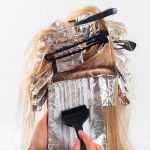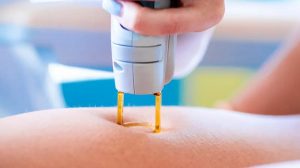
Does Hair Grow Faster in the Summer? True Or False?
Yes, hair does grow more quickly in the summer. But it really depends on what “summer” means to you.
For instance, does yours frequently include precipitation, clouds, and wind gusts? Sadly, the season alone won’t help you grow your hair if you don’t have any tropical vacations or exotic travel planned.
The extra lengthening of your strands during the summer, however, may be something you look forward to if you’re one of the fortunate people who wakes up to warm air and sunshine.
Some people still report no discernible hair growth despite this. So what are the primary variables affecting hair growth?
Table of Contents
Why Does Hair Grow Faster in Summer?
So why does the hair grow faster in the summer if it’s not because of the seasons? It all comes down to the favorable climate and the advantages it brings.
Generally speaking, when the temperature is higher throughout the day, your body doesn’t have to work as hard to maintain warmth. As a result, the skin and scalp will receive priority during your blood’s circulation. Your scalp receives all the vital nutrients and oxygen it requires for keratin production thanks to this improved blood flow. Your hair can grow faster and healthier as keratin levels, a protein necessary for hair growth, are raised.
The infamous vitamin D that we all know and love may be another reason why hair may grow more quickly in the summer. According to Healthline, “one role vitamin D plays are causing both new and old hair follicles to grow. New hair growth may be slowed down if your body is deficient in vitamin D.” Given that its main source is sunbathing, this vitamin is therefore crucial in explaining why our hair grows faster in the summer.
Hair Growth in Winter Vs. Summer
The many variables, including genetics, age, sex, and others, that affect how quickly our hair grows have been discussed previously.
However, there are also environmental factors that cause our hair growth to decline, like seasonal changes.
For instance, our hair grows more quickly in the summer and less rapidly in the winter.
One explanation for this is that during the summer, our blood circulates more readily, carrying nutrients more freely throughout the body and enabling your body to produce more keratin, the protein that makes up your hair.
Another factor is that we normally get more vitamin D (the sunshine vitamin) in the summertime.
The conversion of UVB rays by our bodies into vitamin D, which helps the body control keratin production, causes the sun to promote faster hair growth. A malfunction of this regulation brought on by vitamin D deficiency results in hair loss.
In addition, our hair grows more quickly in the summer because, in contrast to the winter, we are more likely to leave our heads exposed, which causes less friction and breakage.
We frequently add hats, hoods, and scarves to our winter clothing, which is wise because our heads lose the majority of our body heat.
The cold weather, however, causes more hair loss as a result of these coverings because they cause more friction on the hair than we typically experience during the summer.
Summer Hair Care Tips
Your hair and scalp may suffer damage from the sun’s and UV rays. The summertime does hair grow more quickly. This is definitely not a help!
Try these easy ‘n breezy summer hair care tips to keep your hair healthy and vibrant during our warmer months:
- Trim: Congratulations if you have been letting your hair grow out throughout the winter and spring. The time is now to get rid of your split ends and update your look.
- Apply UV-filtering hair care products as a shield to protect your hair. By doing this, you can prevent sun damage to your hair and prevent the fading of color-treated hair.
- Cover: Put on a broad-brimmed hat, a bandana, or other appropriate headgear. Your hair won’t get burned with this simple coverage. A sun hat will also shield your neck and ears.
- Saturate: Give your hair a thorough bath of fresh water and leave-in conditioner. After swimming, rinse your hair. No problem if you don’t have a shower. Put fresh water in a spray bottle.
- The summer may cause you to wash your hair more frequently, so moisturize. To get rid of product buildup and other chemicals, use a clarifying or anti-residue shampoo once per week. Afterward, receive a deep-conditioning treatment.
- Avoid blow dryers, curling irons, straighteners, and other hot tools as much as possible.
- Fighting Frizz: Adding a few drops of an anti-frizz product, like argan oil, can smooth hair and add shine.

Factors That Influence Your Hair Growth
When told that certain factors you have no control over are the reason your hair isn’t as strong and healthy as it once was, it may be upsetting if you want to have a full head of healthy hair.
Fortunately, it turns out that you do have some control over the condition of your hair. Some organic components and botanicals can support the growth of your hair.
Let’s talk about a few things that can affect how quickly your hair grows, though. These include:
Genetics
The speed of hair growth is determined by a person’s genes. According to research, genetics can have a significant impact on the quality and texture of your hair, as well as its length and density.
Fortunately, your hair’s health does not entirely depend on genetics. There are natural and botanical ingredients that can be helpful, according to clinical trials.
Sex and Hormones
Additional elements that affect hair growth include these. Male hair grows more quickly than female hair.
Your hair thickness may be influenced by your hormone levels of estrogen and progesterone. Not only during pregnancy but also postpartum and menopause, changes in these hormones can affect your hair’s quality.
However, if your progesterone and estrogen levels are high, stable, or unstable, it will affect how well your hair grows and cause changes to its quality.
Age
With age, hair changes might be more noticeable. Males’ hair changes become more noticeable in their 30s and 40s, when hair loss and graying are more common.
The majority of the time throughout a woman’s life, her hair will change at a few specific times. Although hair may appear full and healthy during pregnancy, hormonal changes after childbirth can cause hair to thin and fall out.
Age-related follicle failure causes some people to lose all of their hair or go bald, while other people only experience thinning hair.
Nutrition
The growth and maintenance of healthy hair depend on proper nutrition. Make sure your diet contains all the vitamins and nutrients needed for healthy hair.
Consume foods like avocados, salmon, wheat, green leafy vegetables, and other foods high in proteins and carbohydrates., and consume a daily dose of supplements that contain vitamins, iron, zinc, magnesium, biotin, and folic acid.
Read about How Long Does It Take To Grow Hair 12 Inches?
Tips For Making Hair Look Thicker All Year Round
At any time of the year, this leaves those of us who haven’t been fortunate enough to live in a tropical climate. How can we make our hair grow faster, summer or winter, if relying on sunshine and warm weather is simply not an option?
Fortunately, there are a few ways to maintain a thicker appearance throughout the year.
Diy Scalp Massage
First, you can improve your scalp’s blood flow on your own. You absolutely need to incorporate routine scalp massages with a stimulating scalp massager into your current haircare regimen. To maintain a healthy scalp environment and encourage healthy hair growth, use this practical tool with dynamic, root-stimulating rubber bristles on dry hair or wet hair for a stimulating deep cleanse.
Hair Density Serum
Second, you can combine a scalp massage with a hair density serum to make your hair appear thicker. This ultra-concentrated serum works to increase the thickness of each strand by up to 13%, according to independent user trials and instrument testing.
This is due to its special combination of active ingredients, which includes Red Clover Extract, Organic Pea Sprout Extract, and Chinese Scullcap. All of these work to stimulate the roots, restoring vitality and improving condition for thicker, denser-looking hair. For a stimulating boost and a full-bodied appearance, green tea’s caffeine energizes the scalp.
Use this serum in conjunction with the scalp massage brush on dry hair. Use the tool to gently work the serum into your roots in small circular motions after applying 20 drops of it directly to your scalp and hairline.
Hair Nutrition
Check out what you’re eating, last but not least. There are many vitamins and minerals that promote hair growth; all you need is a balanced diet full of real, whole foods. Eat some berries, seeds, and nuts as a snack. Include whole grains, oily fish, and vegetables in some of your dinners. The nutrition required for your hair’s thickness year-round will be in front of you once you place an emphasis on healthy, home-cooked meals.
To sum up, while summer may be the time when your hair grows the fastest, what really matters is that your scalp and strands are receiving the nutrients and vitamins they require. This means that the secret to thicker-looking hair in any season is a perfect concoction of sun exposure, hair- and scalp-care products, and a healthy diet.
Phases of Hair Growth
The average annual hair growth rate is about 6-inches, though it varies for each individual. This growth rate equates to roughly half an inch per month. Some people have more, while others have less.
There are four phases of hair growth:
- Anagen/Growing: This stage lasts for about three to five years. Your hair follicles produce hairs that will continue to grow during this time. On your head, almost all of the hairs are in the anagen stage.
- Hair follicles contract and hair growth slows down during the catagen/transition stage. The hair follicle will still hold your hair in place as it begins to separate from the bottom. This stage lasts for about ten days.
- Hairs in the telogen/resting phase do not typically shed or grow back. In follicles that have produced hair during the catagen phase, new hairs also begin to grow during this phase. About three months are spent in this phase.
- Exogen/Shedding: As your hair grows out of your scalp, it sheds, frequently helped along by routine brushing and washing. Did you know that during this stage you lose 50–100 hairs daily?
It’s entirely normal, so don’t be alarmed! There will soon be healthy new hair. About 2 to 5 months pass during this phase.
It is Not Down to the Seasons
As we’ve already mentioned, the process is stimulated more by the associated climatic conditions than by summer itself. The effects on your hair would be the same if you took a winter vacation that involved several weeks spent somewhere warmer. On the other hand, your hair growth will not be affected by a cool summer with little sunlight.



![How Much Does Hair Weigh Already Solved [Newest]](https://www.musehaircare.com/wp-content/uploads/2022/10/How-Much-Does-Hair-Weigh-Already-Solved-Newest-2-150x150.jpg)


